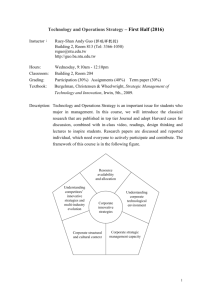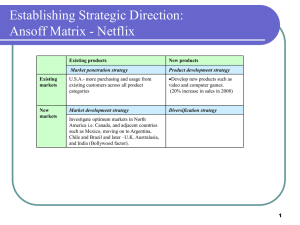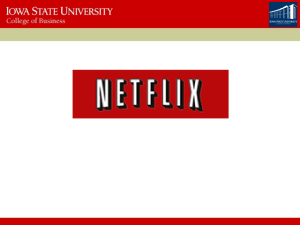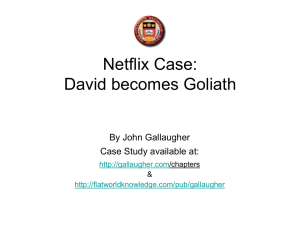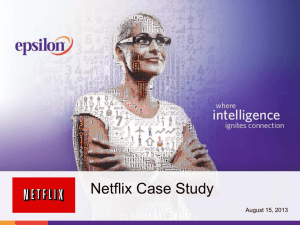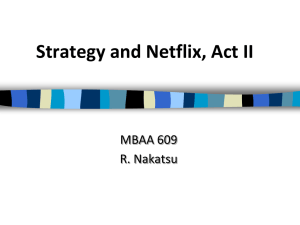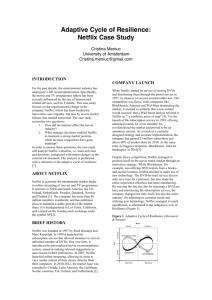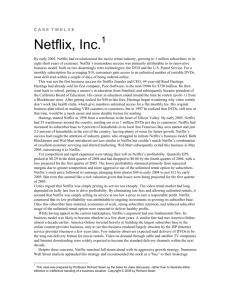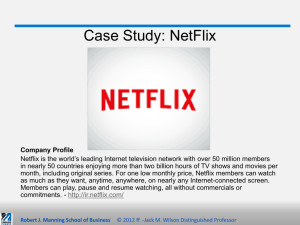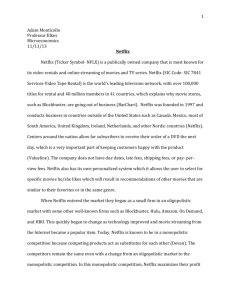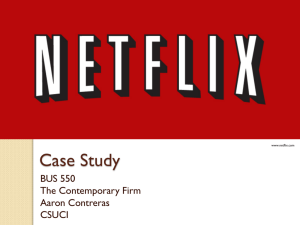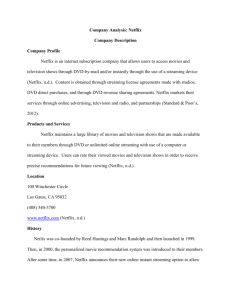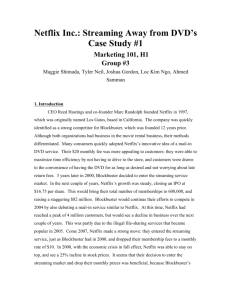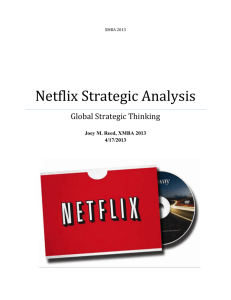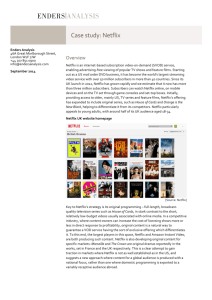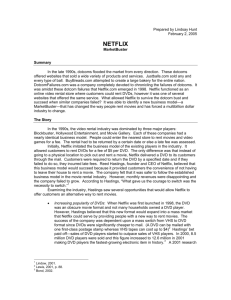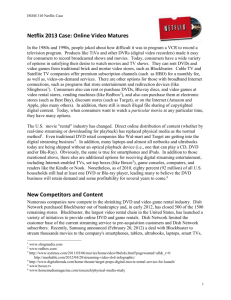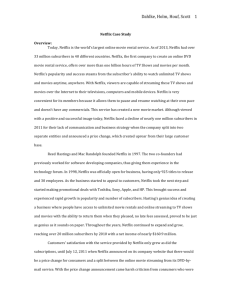netflix: A singulAr vision
advertisement
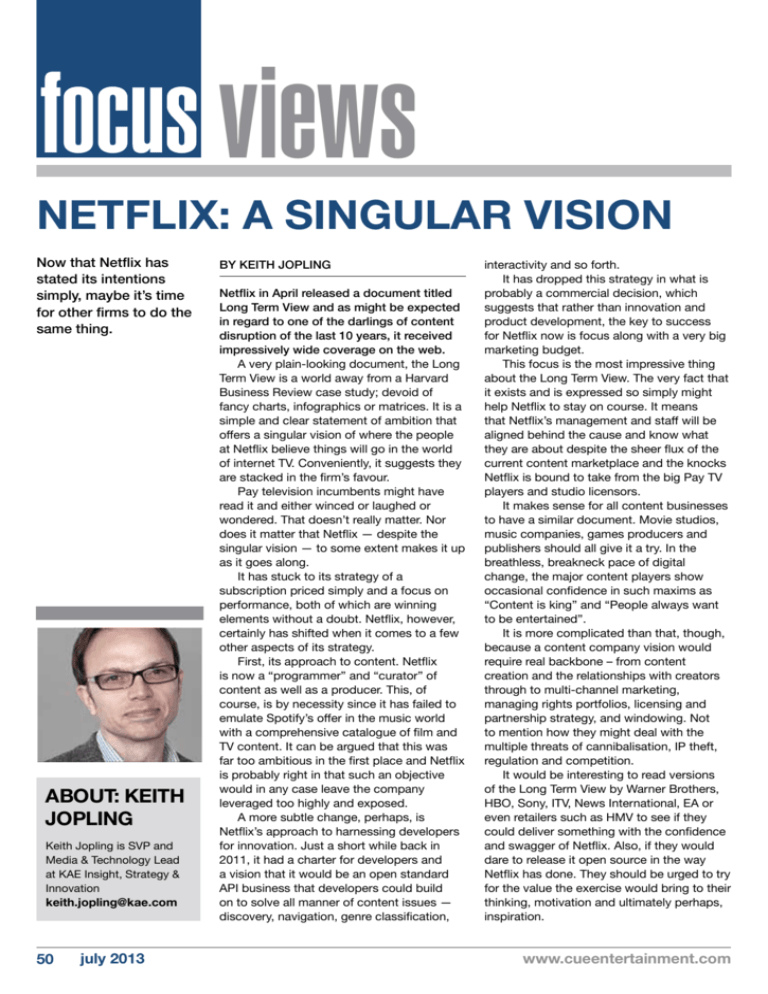
views netflix: A singular vision Now that Netflix has stated its intentions simply, maybe it’s time for other firms to do the same thing. About: Keith Jopling Keith Jopling is SVP and Media & Technology Lead at KAE Insight, Strategy & Innovation keith.jopling@kae.com 50 july 2013 By Keith Jopling Netflix in April released a document titled Long Term View and as might be expected in regard to one of the darlings of content disruption of the last 10 years, it received impressively wide coverage on the web. A very plain-looking document, the Long Term View is a world away from a Harvard Business Review case study; devoid of fancy charts, infographics or matrices. It is a simple and clear statement of ambition that offers a singular vision of where the people at Netflix believe things will go in the world of internet TV. Conveniently, it suggests they are stacked in the firm’s favour. Pay television incumbents might have read it and either winced or laughed or wondered. That doesn’t really matter. Nor does it matter that Netflix — despite the singular vision — to some extent makes it up as it goes along. It has stuck to its strategy of a subscription priced simply and a focus on performance, both of which are winning elements without a doubt. Netflix, however, certainly has shifted when it comes to a few other aspects of its strategy. First, its approach to content. Netflix is now a “programmer” and “curator” of content as well as a producer. This, of course, is by necessity since it has failed to emulate Spotify’s offer in the music world with a comprehensive catalogue of film and TV content. It can be argued that this was far too ambitious in the first place and Netflix is probably right in that such an objective would in any case leave the company leveraged too highly and exposed. A more subtle change, perhaps, is Netflix’s approach to harnessing developers for innovation. Just a short while back in 2011, it had a charter for developers and a vision that it would be an open standard API business that developers could build on to solve all manner of content issues — discovery, navigation, genre classification, interactivity and so forth. It has dropped this strategy in what is probably a commercial decision, which suggests that rather than innovation and product development, the key to success for Netflix now is focus along with a very big marketing budget. This focus is the most impressive thing about the Long Term View. The very fact that it exists and is expressed so simply might help Netflix to stay on course. It means that Netflix’s management and staff will be aligned behind the cause and know what they are about despite the sheer flux of the current content marketplace and the knocks Netflix is bound to take from the big Pay TV players and studio licensors. It makes sense for all content businesses to have a similar document. Movie studios, music companies, games producers and publishers should all give it a try. In the breathless, breakneck pace of digital change, the major content players show occasional confidence in such maxims as “Content is king” and “People always want to be entertained”. It is more complicated than that, though, because a content company vision would require real backbone – from content creation and the relationships with creators through to multi-channel marketing, managing rights portfolios, licensing and partnership strategy, and windowing. Not to mention how they might deal with the multiple threats of cannibalisation, IP theft, regulation and competition. It would be interesting to read versions of the Long Term View by Warner Brothers, HBO, Sony, ITV, News International, EA or even retailers such as HMV to see if they could deliver something with the confidence and swagger of Netflix. Also, if they would dare to release it open source in the way Netflix has done. They should be urged to try for the value the exercise would bring to their thinking, motivation and ultimately perhaps, inspiration. www.cueentertainment.com

